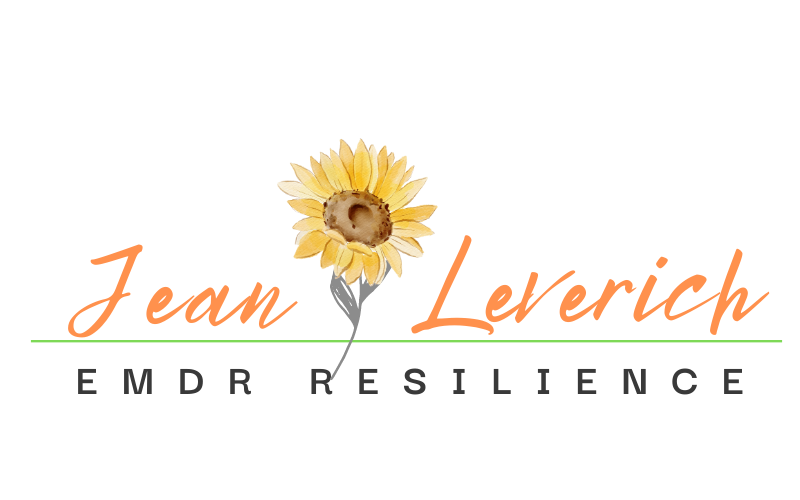
Referring providers: Collaborate to help clients get unstuck
Adjunctive EMDR in Ann Arbor and online throughout MI
What is Adjunctive EMDR and how does it work?
Adjunctive EMDR Therapy is when two therapists partner to provide comprehensive, high-quality care for a client who may seem “stuck” or “looping” around a particular issue or somatic symptom. A client who has been working with a primary therapist will see an EMDR therapist for a specific amount of time to focus on a specific concern.
The sessions can be concurrent - meaning that the client meets with each therapist during a specific period of time - or the client may take a brief pause with their primary therapist while they meet intensively with an EMDR therapist.
The therapists collaborate to create a customized treatment plan for the client. With the client’s consent, the therapists can coordinate a schedule that best meets the client’s needs. After the agreed-upon time frame for Adjunct EMDR Therapy is completed, the client returns to work exclusively with their primary therapist.
Questions? Send me an email or schedule a networking/consultation appointment.
What are the benefits of Adjunctive EMDR?
Adjunctive EMDR therapy hones in on specific distressing memories, triggers, and negative beliefs. This targeted approach allows for thorough processing and resolution of underlying emotional challenges within a fewer number of sessions.
By addressing negative core beliefs and trauma memories in a targeted manner, adjunct EMDR addresses emotional, cognitive, and somatic disturbances that clients will bring back to talk therapy and to their daily lives. EMDR can lead to improvements not only in clients’ emotional states but also in their relationships, coping skills, and self-perception.
The integrated nature of adjunct EMDR often leads to profound and lasting growth. Processing distressing memories, reframing negative beliefs, and fostering self-compassion can lead to transformational change.
What can Adjunctive EMDR help with?
Some of the specialties in which I am trained include:
Acute stress and recent critical incidents (early intervention to minimize the development of PTSD symptoms)
Emotional reactivity (triggered reactions)
Exposure and Response Prevention and EMDR for OCD
Chronic Pain, Long Covid, Tinnitus, Headache and Migraine
Negative core beliefs from developmental and relational trauma
Religious trauma/recovering from high-control groups
Pre-verbal trauma & early trauma
Adjunctive EMDR might be a good fit for your client if …
Traditional talk therapy has been generally beneficial for your client, but perhaps they’ve reached a “stuck point” or are “looping.” When progress begins to plateau, adding EMDR therapy to your existing treatment plan can be an excellent option to jumpstart continued growth and healing.
Clients with symptoms such intrusive memories, flashbacks, negative thoughts or feelings about themselves or others that just don’t change or go away in traditional treatment often benefit from EMDR.
How do I know if my client is ready for Adjunctive EMDR?
Your client isn’t living from “crisis to crisis” and is able to use resources in between therapy sessions.
Your client can tolerate briefly looking at past events without decompensating or dissociating?
Your client can access a calm, resourced state (whether imagined or a memory).
How long does the Adjunctive EMDR collaboration last?
My goal is to see clients for as few sessions as necessary so that they can return to you and continue to work toward their goals with their primary therapist. In my experience, clients who have a strong connection to their long-term therapist often process relatively quickly because the foundation of coping skills, emotional regulation, self-awareness and trust in the process is already established.
Usually adjunctive therapy is short-term (4-12 hours) to assist clearing up any single incident trauma or negative core belief that is interfering with the client making therapeutic gains. The success of the treatment is based on well-focused and clearly defined goals for the EMDR therapist as defined by the primary therapist and client.
Adjunctive EMDR therapy may also be needed as a longer term approach where EMDR is integrated in the ongoing therapy of the client, especially for clients with complex trauma or dissociation. Even if spread out over a longer period of time, adjunctive EMDR typically focuses on a specified problem area, memory, and recent trauma. Clients might alternate between primary and adjunct therapists or see the EMDR therapist once or twice a month.
“Alone we can do do so little; together we can do so much.” - Helen Keller
Frequently asked questions about adjunctive emdr
FAQs
-
-
My fees are $185 per hour. A 90-minute session is $275.
An EMDR Intensive that has 10 contact hours costs $2000.
-
I do! Income-based sliding scale fees and payment plans can be arranged.
-
Some insurance plans will reimburse a portion of the cost of an EMDR Intensive. Please know that the insurance company requires a diagnosis code as a reason for treatment. I recommend calling the customer service number on the back of your insurance card in order to get details about your specific plan. I’m happy to provide more information to help with this process.


